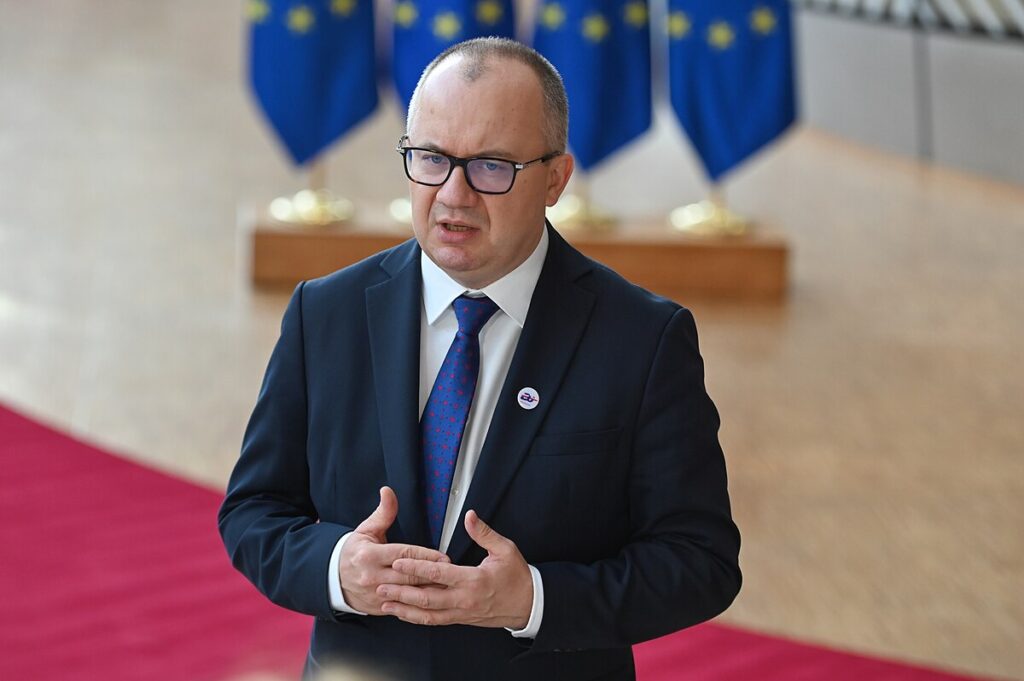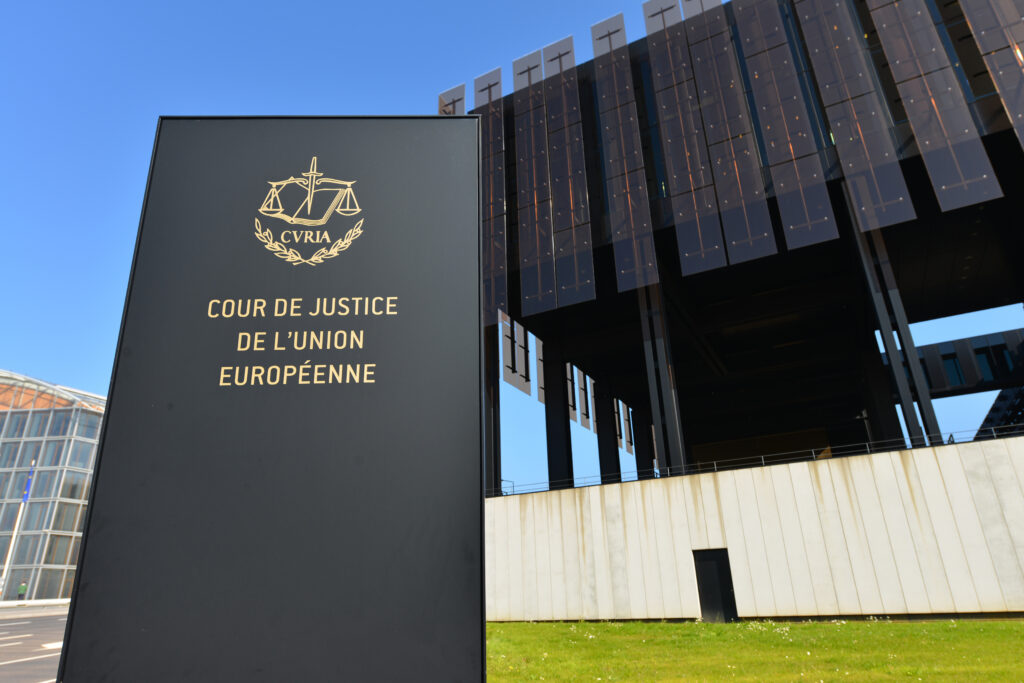- Minister of Justice Adam Bodnar has once again unjustifiably questioned the competence of the Extraordinary Review and Public Affairs Chamber of the Supreme Court to rule on the validity of the presidential election.
- The Minister also presented three proposals on how to ‘circumvent’ the statutory provisions that designate this Chamber for this role. All these proposals have one thing in common: they have no legal basis and therefore would be null and void.
- The Minister’s somewhat unclear reasoning could be interpreted as support for the suggestion that the Speaker of the Sejm, Szymon Hołownia, should take over the duties of the President. However, such a solution has been widely rejected by constitutional experts, including those sympathetic to the current ruling majority.
Last Sunday (8 June 2025), Minister of Justice Adam Bodnar gave an interview to public broadcaster TVP Info, in which he referred, among other things, to the recent presidential election.
Unfounded questioning of the status of the Extraordinary Review and Public Affairs Chamber of the Supreme Court
Almost at the very beginning of his statement, he repeated the view that the Extraordinary Review and Public Affairs Chamber of the Supreme Court (which, pursuant to Article 26 § 1, point 2 of the Act on the Supreme Court, is competent to examine election protests and rule on the validity of the election of the President of the Republic of Poland), as “not recognised by European courts” and “is not a court within the meaning of the Constitution”:
should not rule on these matters.
It should be recalled here that the Minister’s reasoning is completely erroneous and unjustified, as was pointed out just last week by the First President of the Supreme Court. Even if one were to accept that the judgments of the Court of Justice of the European Union and the European Court of Human Rights relating to the Extraordinary Review and Public Affairs Chamber of the Supreme Court were delivered legally, without exceeding the powers conferred on these courts in the relevant treaties (which in itself raises serious doubts), these judgments certainly do not apply to the issue of ruling on the validity of elections in Poland, as this issue is neither subject to EU law nor falls within the scope of the right to a fair trial in civil and criminal matters referred to in Article 6 of the European Convention on Human Rights.
Polish Constitutional Tribunal is only body competent to rule that statutory provisions—both establishing the Extraordinary Review and Public Affairs Chamber, as well as making it competent to rule on specific matters—are contrary to the Constitution. Until the Tribunal rules otherwise (and it is difficult to see on what grounds it could do so) or the Sejm amends the Supreme Court Act, all other authorities are obliged to act on the basis of and within the limits of the law, as stated in the Article 7 of the Polish Constitution, including complying with the provisions of the Supreme Court Act, which implement Article 127(7) and 129(2) of the Constitution, according to which, the rules and procedures for ruling on the validity of elections and for examining election protests are to be regulated by the statutory law.
As has unfortunately become a sad practice, Minister Bodnar clearly does not intend to be concerned about the above principle, as during the interview he proposed at least three further possible actions on the part of the government majority, all of which have one thing in common—they all lack any legal basis.
Three proposals for actions without legal basis: ‘reviving’ the powers of the Labour and Social Insurance Chamber; adding a note by the Prime Minister to the Supreme Court’s resolution; withdrawing the President’s veto
Firstly, the Minister once again proposed that the powers of the Labour and Social Insurance Chamber to consider election protests and rule on the validity of elections be “revived”. Indeed, until 2018 this chamber had functioned as the Labour, Social Insurance and Public Affairs Chamber and was competent to rule on public matters, which had included election protests. However currently, any attempt by this chamber to take any decision in this regard would be not only devoid of any legal basis but also directly contrary to the Supreme Court Act and, therefore, to the Constitution — null and void.
As a second solution, the Minister proposed that if the Extraordinary Review and Public Affairs Chamber nevertheless adopts a resolution on the validity of the presidential election, the resolution would be published by the Prime Minister:
with an appropriate annotation expressing doubts about this chamber.
However, it should be emphasised that the publication of such a resolution, like the publication of anything else in the official journal, is an absolute obligation of the Prime Minister, resulting from Article 324 § 3 of the Electoral Code in conjunction with Article 21 of the Act on the publication of normative acts and certain other legal acts. No legal provision authorises the Prime Minister to add any annotations to documents published in official journals. Such an annotation would therefore have no legal effect.
Finally, the third solution proposed by Minister Bodnar (or, more specifically, by the journalist interviewing him, whom the Minister did not correct but, on the contrary, took up her suggestion) would be to “withdraw the President’s veto” on the so-called incidental act. First of all, it should be noted here that the Polish legal system does not provide for such a thing as the withdrawal of a veto. If, in accordance with Article 122 of the Constitution, the President, within the statutory period of 21 days from the date of receiving a bill passed by the Sejm, refuses to sign it and returns it to the Sejm for reconsideration (commonly referred to as vetoing a bill), then the only way to “withdraw” the President’s action is for the Sejm to re-adopt the act by a majority of 3/5 of the votes in the presence of at least half of the statutory number of deputies—i.e., the so-called rejection of the veto.
On this occasion, it is also worth mentioning that Minister Bodnar spoke very warmly during the interview about the incidental law, describing it as the fruit of the “great effort” of the ruling majority. Meanwhile, this act constitutes an unprecedented act of interference by the legislative power in the judicial power, by allowing the Sejm to appoint specific judges to adjudicate in a specific case. It also violates the prohibition on introducing significant changes to electoral law less than six months before elections, derived by the Constitutional Tribunal from Article 2 of the Constitution (The Republic of Poland shall be a democratic state ruled by law and implementing the principles of social justice.). What is more, the law appointed 15 judges with the longest service in the Supreme Court—i.e., those of whom the vast majority joined the judiciary during the communist rule of the Polish People’s Republic—to rule on the validity of the elections. Minister Bodnar must be aware of this circumstance, because shortly after he stated:
No one would have any doubts, no one would dare to question a ruling issued by the 15 most senior judges of the Supreme Court.
—he somehow let slip that:
They [these judges] were appointed at different times.
However, he immediately added, presumably to reassure viewers, that:
These are absolutely judges whose status is in no way questioned.
—thus clearly suggesting that judges who entered the profession during the communist era are more independent than judges who have been promoted to the Supreme Court since 2018.
No conclusion – can the Speaker of the Sejm take over the duties of the president?
At the end of Minister Bodnar’s statement, there was no clear conclusion. He merely asked a question:
What should Speaker of the Sejm Szymon Hołownia do, should he recognise that the chamber is functioning [legally], when he himself had expressed many doubts before?
—perhaps suggesting that he shares the view of Ryszard Kalisz, a former politician of the Left and currently a member of the State Electoral Commission appointed by that party, according to which the Marshal of the Sejm would be able to take over the duties of the President if the Supreme Court does not confirm the validity of the elections in a manner that would not raise doubts among the current ruling majority.
However, this solution was unexpectedly criticised by Professor Marek Chmaj, who is by no means associated with sympathy for the current opposition but quite the opposite. In his academic paper, he pointed out that, due to the democratic system of the Republic of Poland, the only entity authorised to perform the duties of the president from the moment his predecessor’s term of office ends, until his successor is sworn in, is… the president-elect.
Instead of a summary – the hypocrisy of Minister Bodnar
Finally, it is also worth referring to the last issue—Minister Bodnar emphasised in the interview how, for example, after the recent by-elections to one of the Senate constituencies, he took an unambiguous position, in which he appealed to the Supreme Court not to allow the Extraordinary Review and Public Affairs Chamber to rule on the validity of these elections. However, it should be recalled that Minister Bodnar did not see a problem with the fact that it was the Extraordinary Review and Public Affairs Chamber that ruled on the validity of the parliamentary elections that took place in autumn 2023 and turned out to be favourable to the current government majority.
The hypocrisy of the current government in this regard was recently pointed out by the Ombudsman. What is more, at the very beginning of his term of office, the Minister directly asked this chamber to confirm the validity of those elections, as was recalled by Internet users:
In summary, one may get the impression that after losing the presidential election, the government is starting to feel the heat. It is difficult to interpret Minister Bodnar’s presentation of three proposals—which, although the Minister did not say so explicitly, seem to be intended to prevent Karol Nawrocki from becoming president—in any other way. This anxiety and lack of a plan is clearly visible especially by the fact, that none of these proposals are capable of achieving this goal, since they have no legal basis and therefore will be null and void, .
Image source: Wikipedia.



